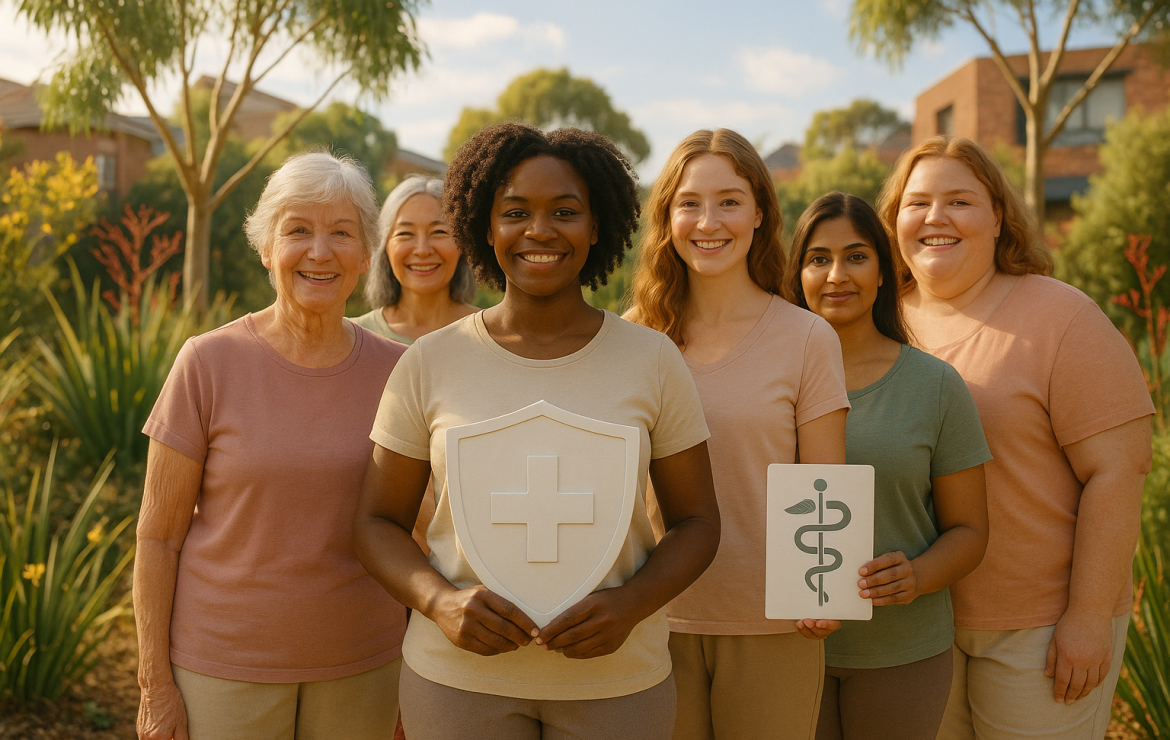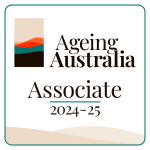Women’s Health Week 2025: Australia’s Largest Wellness Campaign

Jean Hailes Women’s Health Week 2025: Empowering Millions for Better Health
In a groundbreaking initiative set to inspire and educate millions, Australia’s largest women’s health event is making a triumphant return in 2025. The Jean Hailes Women’s Health Week (WHW) stands as a beacon of hope and empowerment, offering a comprehensive platform for health education, advocacy, and community engagement. This year’s theme, “Say yes to you,” resonates with the core mission of encouraging women, girls, and gender-diverse individuals to prioritize their health and well-being.
The Evolution of Women’s Health Week
Jean Hailes Women’s Health Week has come a long way since its inception. What began as a focused effort to raise awareness about women’s health issues has blossomed into a nationwide phenomenon that touches the lives of millions. The event has adapted to the changing landscape of public health, expanding its reach and inclusivity to address the diverse needs of all individuals across the gender spectrum.
In recent years, WHW has embraced a more holistic approach to health, recognizing the interconnectedness of physical, mental, and social well-being. This evolution reflects a broader shift in healthcare towards preventive measures and personalized care. The inclusion of gender-diverse health considerations marks a significant step forward, acknowledging the unique health challenges faced by individuals across the gender spectrum.
Event Details: Mark Your Calendars
The 2025 Women’s Health Week is scheduled for 1 to 5 September, promising five days packed with invaluable health insights, interactive sessions, and community-building activities. The theme “Say yes to you” serves as a powerful call to action, encouraging participants to take charge of their health through self-care, advocacy, and regular health check-ups.
Nationwide Reach and Participation
The impact of WHW continues to grow year after year. In 2024, the event reached an astounding 5 million people online, with the Jean Hailes website recording 1.6 million pageviews. The previous year’s event in 2023 saw 1,563 events organized across the country, engaging 531,000 participants directly with crucial health information.
These numbers not only highlight the event’s popularity but also underscore the pressing need for accessible, reliable health education in Australia. As we look towards the 2025 edition, expectations are high for even greater participation and impact.
Key Focus Areas: A Holistic Approach to Health
Women’s Health Week 2025 adopts a comprehensive approach to health, addressing various aspects that contribute to overall well-being:
Physical Health
Physical health remains a cornerstone of WHW. The event will cover a wide range of topics, from nutrition and exercise to specific health conditions that disproportionately affect women and gender-diverse individuals. Experts will provide insights on maintaining optimal physical health at every stage of life.
Mental Wellbeing
Recognizing the intrinsic link between mental and physical health, WHW 2025 places a strong emphasis on mental wellbeing. Sessions will address common mental health challenges such as anxiety and depression, particularly in urban environments where lifestyle factors can exacerbate these issues.
Reproductive Health
Reproductive health continues to be a crucial focus area. The event will offer up-to-date information on contraception, fertility, menopause, and related topics, ensuring that individuals have access to the knowledge they need to make informed decisions about their reproductive health.
Chronic Disease Management
With chronic diseases on the rise, WHW 2025 dedicates significant attention to prevention, early detection, and management strategies. From heart disease to diabetes, experts will share the latest research and practical advice for living well with chronic conditions.
Expert Insights: Leading Voices in Women’s Health
Women’s Health Week brings together some of Australia’s foremost experts in various health fields. Their insights and recommendations form the backbone of the event’s educational content:
Dr. Jodie Dakic on Pelvic Floor Health
Dr. Jodie Dakic, a respected physiotherapist, emphasizes the importance of pelvic floor health. “A healthy pelvic floor can support your continence health,” she states. “Early treatment is key — you only get one body.” Dr. Dakic’s webinar during WHW 2025 will provide practical tips for maintaining pelvic floor strength and addressing common issues.
Janine Armocida on Continence Awareness
Janine Armocida, Manager of the National Continence Helpline, joins forces with WHW to raise awareness about continence issues. Her expertise will be invaluable in breaking down stigmas and encouraging open conversations about a topic that affects millions but is often shrouded in silence.
Mental Health Experts Focus on Urban Wellbeing
A panel of mental health experts will address the unique challenges faced by women and gender-diverse individuals in urban settings. With a particular focus on areas like Bondi, NSW, they will explore how city living can impact mental health and offer strategies for maintaining emotional balance in fast-paced environments.
Case Study: Bondi, NSW Initiatives
The coastal suburb of Bondi serves as an excellent case study for targeted health initiatives during WHW 2025. Recognizing the specific health risks prevalent in this urban beach community, local organizers have developed a tailored approach:
Targeted Awareness Campaigns
Bondi’s WHW initiatives focus on high-prevalence health risks including skin cancer (due to high sun exposure), mental health challenges related to body image and social pressures, and the importance of regular screenings for breast, cervical, and ovarian cancers.
Empowering Urban Women
The campaign in Bondi aims to empower women and gender-diverse individuals to take proactive steps in managing their health. This includes organizing beachside yoga sessions, mental health workshops, and mobile screening units to make health checks more accessible.
Ocean Medical Bondi, a local healthcare provider, emphasizes the unique health landscape of the area: “Women in Bondi face unique health challenges, but proactive steps can safeguard physical and mental wellbeing.”
Current Trends and Future Projections
As WHW continues to evolve, several key trends are shaping its future:
Increased Digital Engagement
The success of online engagement in recent years has paved the way for more extensive digital offerings. Virtual events, webinars, and interactive online resources are expected to play an even larger role in WHW 2025, making health information accessible to a broader audience.
Expansion of Gender-Diverse Health Topics
Recognizing the diverse health needs across the gender spectrum, WHW is expanding its content to be more inclusive. This includes addressing specific health concerns of transgender and non-binary individuals, ensuring that the event truly caters to all.
Integration of Local Community Initiatives
While WHW maintains its national focus, there’s a growing emphasis on tailoring content and activities to local communities. The Bondi case study exemplifies this trend, with more regions expected to develop localized health programs under the WHW umbrella.
Societal and Industry Impact
The ripple effects of Women’s Health Week extend far beyond the event itself:
Empowerment of Women and Gender-Diverse Individuals
By providing accessible, evidence-based health information, WHW empowers individuals to take control of their health. This increased health literacy translates to more informed decision-making and proactive health management.
Influence on Preventive Health Behaviors
The event’s focus on prevention and early detection encourages participants to adopt healthier lifestyles and regular screening habits. This shift towards preventive care has the potential to reduce the burden on the healthcare system in the long term.
Support for Healthcare Workers
WHW also shines a light on the health needs of healthcare workers, particularly women in aged care. With approximately 240,700 female workers in Australian aged care, the event provides crucial information on occupational health risks and self-care strategies for those in physically demanding roles.
How To Participate in Women’s Health Week 2025
Getting involved in WHW is easier than ever. Here are some ways you can participate:
-
Register for Virtual Events and Webinars
Take advantage of the extensive online offerings, from expert-led webinars to interactive Q&A sessions. -
Organize a Local Community Health Fair
Gather local health providers and organizations to create a one-stop health information event in your community. -
Utilize Social Media to Spread Awareness
Share WHW content on your social platforms, using official hashtags to join the national conversation. -
Implement Health Challenges in Your Workplace
Encourage colleagues to participate in WHW-themed health challenges, promoting a culture of wellbeing at work. -
Create a Personal Health Action Plan
Use the resources provided by WHW to develop a personalized plan for improving your health over the coming year.
Frequently Asked Questions
How can men support Women’s Health Week?
Men can participate by attending events, sharing information with women in their lives, and advocating for gender equality in health care. WHW encourages men to be allies in promoting women’s and gender-diverse health.
Are there specific events for young women and teenagers?
Yes, WHW 2025 includes tailored content for younger participants, addressing topics like menstrual health, body image, and mental wellbeing specific to adolescents and young adults.
How does WHW address cultural diversity in health education?
WHW partners with culturally diverse organizations to provide culturally sensitive health information. Resources are available in multiple languages, and events include speakers from various cultural backgrounds.
What resources are available for rural participants?
WHW offers extensive online resources accessible to rural participants. Additionally, there are initiatives to support local health providers in organizing events in rural communities, ensuring equitable access to health information.
How can healthcare professionals get involved beyond attending?
Healthcare professionals can volunteer as speakers, contribute to resource development, or host events in their practices. WHW also encourages professionals to share event information with their patients.
Challenges and Solutions
While WHW continues to grow in reach and impact, it faces several challenges:
Engaging Hard-to-Reach Demographics
Challenge: Certain demographics, including older women, those from culturally diverse backgrounds, and individuals in remote areas, may be underrepresented in WHW participation.
Solution: WHW is implementing targeted outreach programs, partnering with community leaders, and developing culturally appropriate materials to bridge this gap.
Balancing Physical and Virtual Event Offerings
Challenge: With the success of online engagement, there’s a need to strike a balance between virtual accessibility and the benefits of in-person community events.
Solution: WHW 2025 will adopt a hybrid model, offering both online and physical events. Local organizers will be provided with resources to create safe, engaging in-person experiences while maintaining a robust digital presence.
Addressing Diverse Health Needs Across Age Groups
Challenge: The health priorities of a teenager differ significantly from those of a post-menopausal woman, making it challenging to create universally relevant content.
Solution: WHW is developing age-specific tracks within the program, ensuring that participants can access information most relevant to their life stage while still benefiting from the overall event.
Ethical Considerations and Best Practices
As WHW continues to grow, maintaining ethical standards is paramount:
Inclusive Language and Representation
WHW is committed to using inclusive language that respects all gender identities. Marketing materials and event content are carefully curated to represent diverse body types, ethnicities, and abilities.
Data Privacy in Health Surveys and Online Engagement
With increased online participation comes the responsibility of protecting user data. WHW implements strict data protection measures, especially for sensitive health information collected during surveys or webinars.
Responsible Fundraising Practices
While fundraising is an important aspect of sustaining WHW, the organization has implemented clear guidelines to ensure that all fundraising activities align with the event’s core mission and do not exploit participants.
Ensuring Equitable Access to Health Information
WHW strives to make all resources accessible, including providing materials in multiple languages and formats suitable for individuals with disabilities.
Success Stories
The impact of WHW is best illustrated through the stories of those it has touched:
Sarah, 35, from Rural Queensland: “Thanks to a WHW webinar, I learned about the importance of regular skin checks. I booked an appointment and caught a melanoma early. WHW literally saved my life.”
Community Health Center in Tasmania: “Hosting a WHW event brought our community together. We saw a 30% increase in women booking health check-ups in the months following.”
Dr. Amelia Chen, GP: “WHW has transformed how my patients approach their health. They come in more informed and proactive about preventive care.”
Tools and Resources
WHW 2025 offers a wealth of resources to support participation:
- Digital Platforms: User-friendly interfaces for accessing webinars, virtual health fairs, and interactive workshops.
- Downloadable Health Information Kits: Comprehensive guides on various health topics, available in multiple languages.
- Community Event Planning Guides: Step-by-step instructions for organizing local WHW events.
- Health Tracking Apps: WHW-recommended apps for monitoring various aspects of health, from menstrual cycles to mental wellbeing.
Conclusion
Jean Hailes Women’s Health Week 2025 stands as a testament to the power of community, education, and empowerment in advancing health outcomes. By saying “yes to you,” participants are not just prioritizing their own health but contributing to a broader movement towards a healthier, more informed society.
As we look forward to this landmark event, the call to action is clear: engage, learn, and take charge of your health. Whether you’re attending a local event, tuning into a webinar, or simply starting a conversation about health with loved ones, your participation in WHW 2025 is a step towards a healthier future for all.
Additional Resources
For more information and to get involved, visit:
Join us in saying “yes to you” this Women’s Health Week, and be part of a movement that’s changing lives across Australia.









